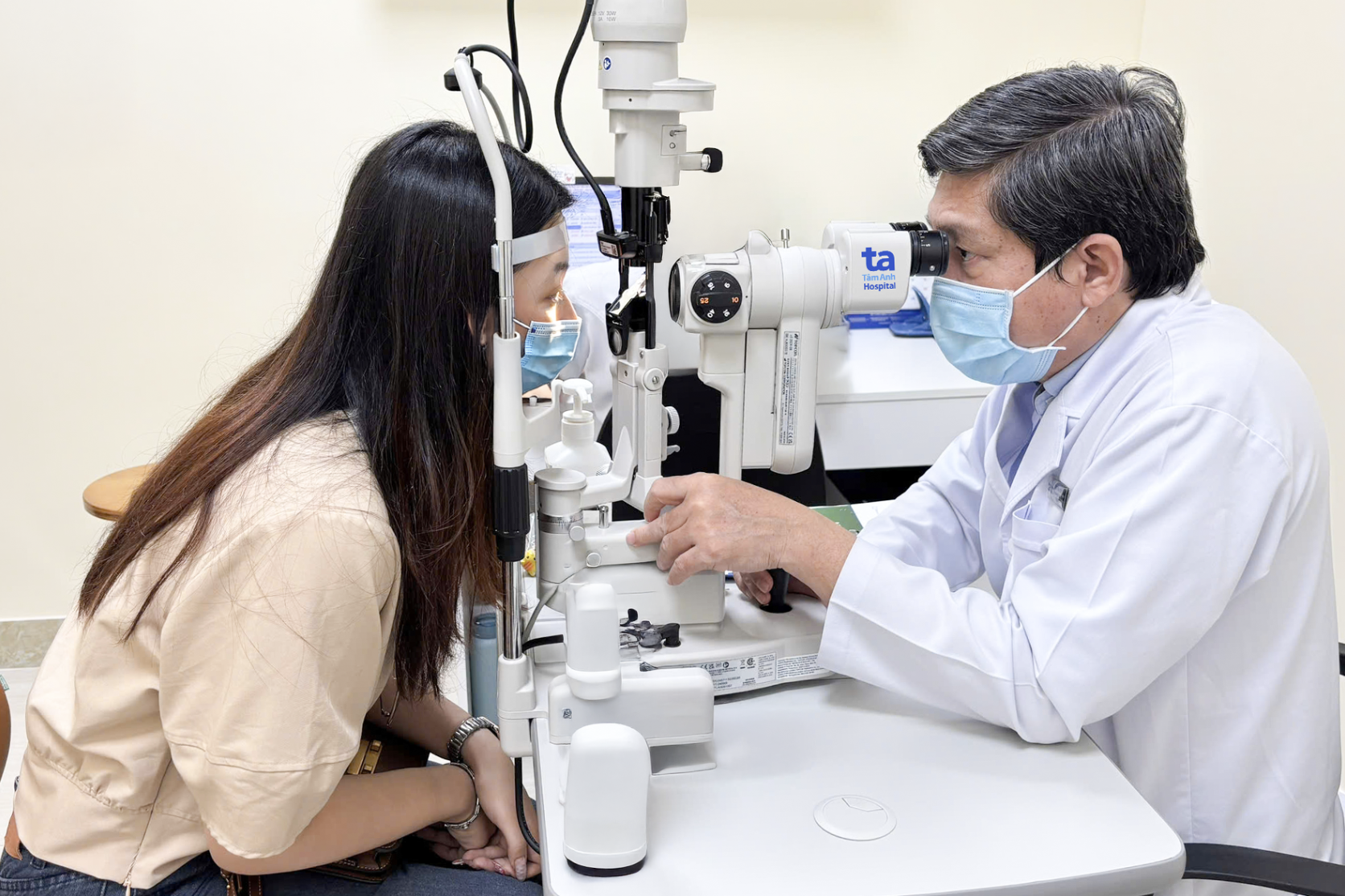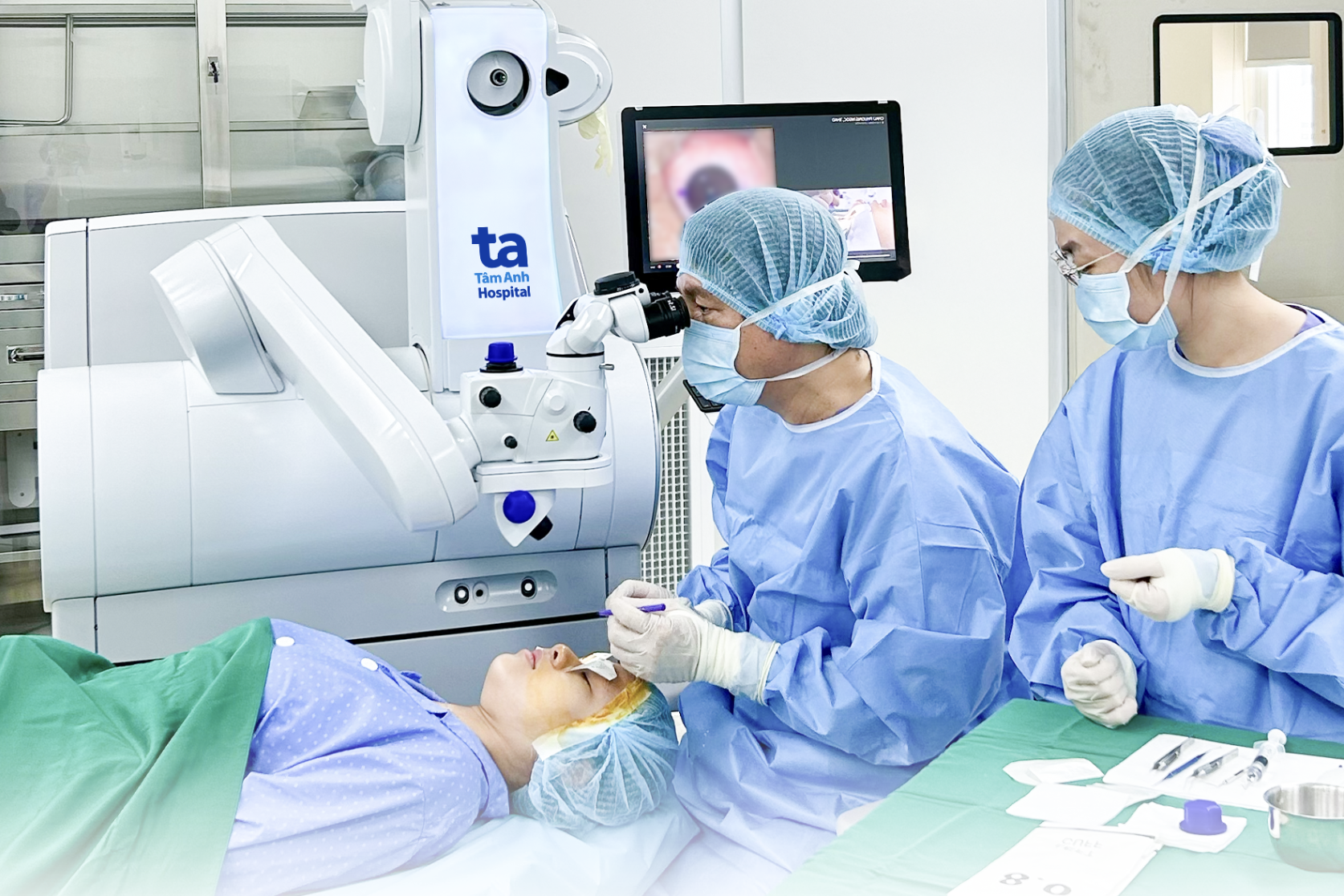Dr. Dinh Trung Nghia, deputy director of the High-Tech Eye Center at Tam Anh General Hospital in Ho Chi Minh City, reported that Hang's vision has stabilized. Her prescription hasn't changed more than 0.5 diopters in 12 months, and her corneal thickness is within the average range (530-540 microns). Hang is also free from eye diseases like infections or corneal issues.
Dr. Nghia determined that Hang was a suitable candidate for SMILE Pro (Small Incision Lenticule Extraction). This advanced version of SMILE technology corrects myopia and astigmatism through a small, 2-3 mm incision. It's minimally invasive, painless, and offers a quick recovery.
 |
Dr. Nghia examines Hang's eyes. Photo: Tam Anh General Hospital |
Dr. Nghia examines Hang's eyes. Photo: Tam Anh General Hospital
The procedure involves a highly precise femtosecond laser, with a treatment time of only about 10 seconds per eye. Unlike traditional LASIK, SMILE Pro doesn't require creating a corneal flap. This preserves the cornea's structure, reduces the risk of complications, minimizes regression, and promotes faster visual recovery.
In cases of high refractive errors like Hang's, the surgeon precisely targets the astigmatism axis during the procedure to fully correct it. In Hang's post-operative checkups, her vision in both eyes reached 20/15.
 |
Dr. Nghia performs the eye surgery. Photo: Tam Anh General Hospital |
Dr. Nghia performs the eye surgery. Photo: Tam Anh General Hospital
Dr. Nghia advises individuals with myopia from a young age to monitor and manage their condition, especially during puberty when eyes are still developing and refractive changes are common. It's crucial not to ignore worsening eyesight, as rapidly progressing myopia can lead to severe prescriptions, often accompanied by astigmatism. This can significantly impact daily life and academic performance.
Those with myopia should spend at least one to two hours outdoors daily. Natural light plays a vital role in controlling eyeball growth, which can slow the progression of myopia. If your prescription increases by more than 0.5 diopters within six months to a year, or if you experience symptoms like blurred vision, eye strain, or frequent squinting, consult an ophthalmologist promptly.
Nguyen Minh
*The patient's name has been changed.
| Readers can submit questions about eye diseases here for doctors to answer. |












